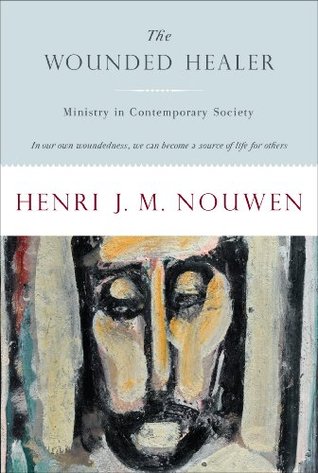More on this book
Community
Kindle Notes & Highlights
Teaching in this context does not mean telling the old story over and over again, but the offering of channels through which people can discover themselves, clarify their own experiences and find the niches in which the Word of God can take firm hold.
Compassion must become the core and even the nature of authority.
The compassionate man stands in the midst of his people but does not get caught in the conformist forces of the peer group, because through his compassion he is able to avoid the distance of pity as well as the exclusiveness of sympathy.
Through compassion it is possible to recognize that the craving for love that men feel resides also in our own hearts, that the cruelty that the world knows all too well is also rooted in our own
Thus the authority of compassion is the possibility of man to forgive his brother, because forgiveness is only real for him who has discovered the weakness of his friends and the sins of his enemy in his own heart and is willing to call every human being his brother.
More training and structure are just as necessary as more bread for the hungry. But just as bread given without love can bring war instead of peace, professionalism without compassion will turn forgiveness into a gimmick, and the kingdom to come into a blindfold.
For a man of prayer is, in the final analysis, the man who is able to recognize in others the face of the Messiah and make visible what was hidden, make touchable what was unreachable.
If there is any posture that disturbs a suffering man or woman, it is aloofness. The tragedy of Christian ministry is that many who are in great need, many who seek an attentive ear, a word of support, a forgiving embrace, a firm hand, a tender smile, or even a stuttering confession of inability to do more, often find their ministers distant men who do not want to burn their fingers.
it seems necessary to re-establish the basic principle that no one can help anyone without becoming involved, without entering with his whole person into the painful situation, without taking the risk of becoming hurt, wounded or even destroyed in the process. The beginning and the end of all Christian leadership is to give your life for others.
The great illusion of leadership is to think that man can be led out of the desert by someone who has never been there.
have—found that the very feeling which has seemed to me most private, most personal and hence most incomprehensible by others, has turned out to be an expression for which there is a resonance in many other people.
“He is sitting among the poor covered with wounds. The others unbind all their wounds at the same time and then bind them up again. But he unbinds one at a time and binds it up again,
As soon as our intentions take over, the question no longer is, “Who is he?” but, “What can I get from him?”—and then we no longer listen to what he is saying but to what we can do with what he is saying.
Concentration, which leads to meditation and contemplation, is therefore the necessary precondition for true hospitality. When our souls are restless, when we are driven by thousands of different and often conflicting stimuli, when we are always “over there” between people, ideas and the worries of this world, how can we possibly create the room and space where someone else can enter freely without feeling himself an unlawful intruder?
human withdrawal is a very painful and lonely process, because it forces us to face directly our own condition in all its beauty as well as misery. When we are not afraid to enter into our own center and to concentrate on the stirrings of our own soul, we come to know that being alive means being loved.
It is healing because it takes away the false illusion that wholeness can be given by one to another.
Community arises where the sharing of pain takes place, not as a stifling form of self-complaint, but as a recognition of God’s saving promises.
we can make ourselves and others understand that we already carry in us the source of our own search.


